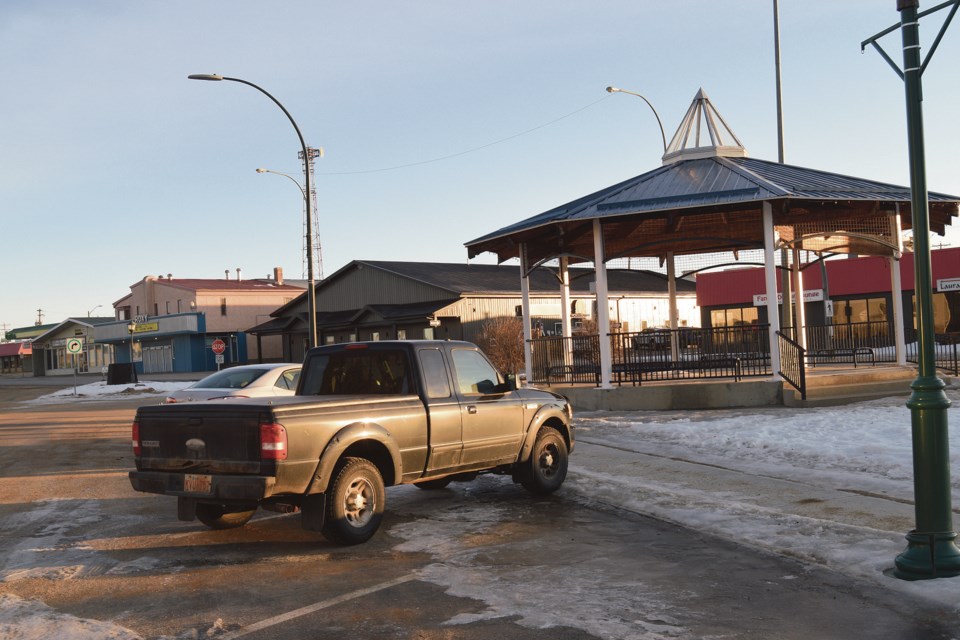BARRHEAD – The Town of Barrhead is looking into the possibility of building two electric vehicle charging stations.
The charging stations will be made possible through a joint federal/provincial initiative that will make $3.4 million available in a rebate initiative program to increase the province’s electric vehicle charging infrastructure.
Chief administrative officer Edward LeBlanc told councillors during their Feb. 8 meeting that they first discussed the potential of installing municipally-owned electric vehicle chargers in June 2020 after receiving an invitation to participate in the Northwest Alberta Vehicle Charging Network.
Edson mayor Kevin Zahara made the invitation as part of a form letter sent to several of the region's municipalities, including the Municipal District of Greenview, Municipality of Jasper, Town of Athabasca, Town of Fox Creek, Town of Rocky Mountain House, Town of Whitecourt, Woodlands County, Yellowhead County, Town of Slave Lake, Town of Westlock, Town of Fox Creek, Town of Drayton Valley and both Barrhead municipalities.
At the time, both Barrhead municipalities accepted the letter as information.
At the June 9 council meeting, Town of Barrhead mayor Dave McKenzie noted the municipality was pursuing a plan of its own but at the time were not ready to unveil it.
However, within the Town and Country readership area, both Woodlands County and the Town of Westlock councils voted to become regional collaborators. As a regional collaborator, municipalities were asked to contribute seed money to create a "professional plan and other documentation" to help secure grant funding for future phases.
Chief administrative officer Edward LeBlanc noted the Northwest Alberta Vehicle Charging Network did not come to fruition. He said they learned about the program via an e-mail from Alberta Municipalities (formerly Alberta Urban Municipalities Association).
About $2 million will come from the federal Natural Resources Canada’s Zero-Emission Vehicle Infrastructure Program (ZEVIP), while the province is kicking in another $1.4 million. The fund is being administered by the Municipal Climate Change Action Centre (MCCAC) and is open to municipalities on a first-come-first served basis.
The MCCAC is a partnership between the province, AM and the Rural Municipalities of Alberta. Its purpose is to help Alberta municipalities, school authorities and other community organizations lower their carbon footprints by advancing actions that reduce greenhouse gas emissions and lower energy costs.
"We've moved ahead with the first step and submitted an expression of interest with MCCAC," said LeBlanc.
The next step is for the town to submit a formal grant application to the MCCAC, something LeBlanc said they hoped to complete the next day.
If successful, the municipality will receive $200,000, with which they hope to be able to install two Level 3 electric vehicle charging stations.
A Level 3 charging station is the quickest of all the current charging station types, allowing up to three vehicles to charge up to 80 per cent of their battery capacity in 30 minutes.
The grant would cover the estimated costs of the charging stations the municipality would be responsible for installing three-phase power.
LeBlanc said to cut down the expense to the town, they are hoping to partner with FortisAlberta as well.
Proposed station locations include the parking stalls near Memorial Park, adjacent to Highway 33, the parking stalls on the east side of Blue Heron Bowl, near the curling rink and the parking stalls near the gazebo on Main Street.
The proposed cost to charge a vehicle would be from $5 to $10 an hour, with the revenue going to the municipality.
LeBlanc noted the final cost would depend, in large part, on the cost of bringing three-phase power to the station.
One of the benefits of having a station near Blue Heron Bowl is that the curling rink already has three-phase power.
Coun. Don Smith asked what the expected maintenance costs would be.
LeBlanc replied they've only had preliminary discussions with a potential vendor and did not currently have an answer, adding he would have that type of information before council decided if they would move forward with the project.
Coun. Dave Sawatzky was concerned that the station might not be able to accommodate all the various types of charging systems.
"There are four types of outlets," LeBlanc said, noting the Tesla system was particularly unique. "The station will accommodate them all. The cost of them all."
Smith then asked how many users would the stations potentially attract.
LeBlanc stated that it was impossible to know but noted he has already seen electric vehicles in town, including Teslas.
"It is the wave of the future," he said. "Based on what I have read, by 2035, you won't be able to buy a new car other than electric."
The federal government has stated Canada is committed to mandating all new light-duty vehicles sold to be zero-emission by 2035, with an interim sales target of at least 50 per cent by 2030.



